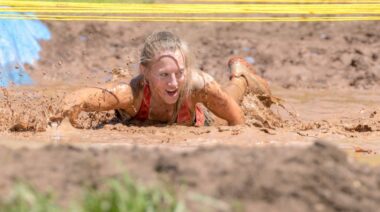Elite ultra-marathon runners tend to be older than athletes of other disciplines. A recent BMC Sports Science, Medicine and Rehabilitation article examined the relation between age, length of race, and performance.
The existing studies performed on endurance age for runners have been performed on individual race distances. In general, when examining the results for each of these individual studies, there seems to be a trend that athlete age increases along with the length of the race. This new study specifically looks at the age of peak performance in a variety of ultra-endurance running events.
Study Design
In most races, the athletes race for the fastest time over a given distance. In this study, a less common type of race in which the athletes run for a given time and compete for the farthest distance was chosen. The studied races took place between 1975 and 2012 and were for the following time periods:
- Six hours
- Twelve hours
- 48 hours
- 72 hours
- Six days
- Ten days
Even the shortest race in this list was longer than a marathon. The researchers looked at how individual athletes performed in each race. They examined the data in many different ways, including the average age of the top ten finishers in each category, the average age of high-ranking finishers for all time, and the differences in age between the finishes for each time.
Results
They found the ages of the top performers did not increase with the race distance. In most of the studied cases, there was a bell curve for the ages of the top performers. For example, the top ten all-time finishers for women in each category ranged from 41 years old for the six-hour race up to 46 years old for the 48-hour race. Then it went back down to 37 years old for ten-day races. For overall top male finishers, the age peaked in the 72-hour race at 51 years old.
The only trends that didn’t resemble a bell curve were the top ten male finishers of all time. The age for the top-performing runners was a youthful 35 for the six-hour race and then up to 48 years old for the 72-hour race. From there, the age of the top finishers plateaued and stayed at 48 years old for all the longer events.
The researchers also found the ages of top performers increased through the years. For example, out of the ten fastest male finishers each year in the 48-hour race category, the average age went from forty years old in 1982 to fifty years old in 2012.
Interpretations and Conclusion
There may be a statistical reason why the average age of peak success in ultra-endurance races didn’t climb as the length of the race increased. The authors of the study pointed out that attendance also declined with increasing race length, especially for women, whose attendance was ten to twenty percent less than of the rate of men. Since there were fewer racers for long events, there was also less statistical strength to the results.
In conclusion, the researchers found successful ultramarathoners tended to be older than 35, and many are well into their forties and fifties. So if you’re reaching your mature years, if you choose the sport of running you won’t be alone. In fact, you might even be at the top of your game.
References:
1. Christoph Rüst, et. al., “Will the age of peak ultra-marathon performance increase with increasing race duration?,” BMC Sports Science, Medicine and Rehabilitation 2014, 6:36.
Photo courtesy of Shutterstock.






